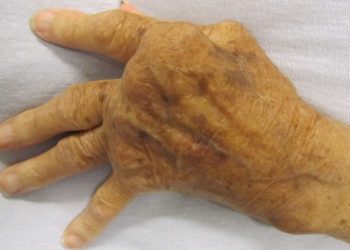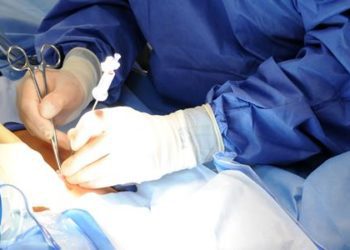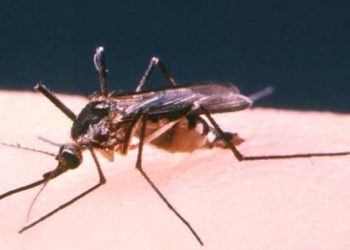#VisualAbstract Seven Days of Antibiotic Treatment Non-inferior to 14 Days for Bloodstream Infections
1. In this randomized controlled trial, among hospitalized patients with a bloodstream infection, seven days of antibiotic treatment was found to be noninferior to 14 days of treatment with respect to death from any cause within 90 days.
2. Rates of antimicrobial-related adverse outcomes, Clostridioides difficile infections, and secondary infection with antibiotic-resistant organisms were similar between the seven-day and 14-day groups.
Evidence Rating Level: 1 (Excellent)
Study Rundown: Bloodstream infections are common and rank among the top seven causes of death globally. Early and appropriate antibiotic therapy is critical for improving survival, but the required duration of treatment is understudied; short courses of antibiotic treatment have raised concerns about relapsing infection and selection of resistance. In the absence of evidence regarding treatment duration for patients with bloodstream infections, recommendations have varied and median durations of treatment have been 14 days or longer. The present trial compared the effects of seven days of antibiotic treatment with those of 14 days of treatment on mortality among hospitalized patients with bloodstream infections. Seven days of antibiotic treatment was found to be noninferior to 14 days of treatment with respect to death from any cause by 90 days. Additionally, length of stay in hospital and ICU, vasopressor use, mechanical ventilation use, antimicrobial-related adverse outcomes, C. difficile infections, and secondary infection or colonization with antibiotic-resistant organisms were also similar between the two groups. The study was limited by its lack of placebo controls and the exclusion of certain pathogens including S. aureus, which has unique virulence factors and therefore might require a longer duration of treatment. Nevertheless, these findings provide novel insights regarding the noninferiority of a shorter antibiotic treatment strategy for bloodstream infections which could reduce drug-acquisition costs and the selection of antimicrobial resistance.
Click to read the study in NEJM
In-Depth [randomized controlled trial]: This multicenter noninferiority trial compared the effects of seven days of antibiotic treatment with those of 14 days of treatment on mortality among hospitalized patients with bloodstream infections. Patients with a blood culture positive for a pathogenic bacterium (excluding Staphylococcus aureus, S. lugdunensis, or bacteremia from rare organisms requiring prolonged treatment) who were not severely immunocompromised and did not have prosthetic heart valves, endovascular grafts, or a documented or suspected infectious syndrome for which prolonged antibiotic treatment would be necessary were included. The primary outcome was death from any cause by 90 days following diagnosis. A total of 3,608 patients were included in the study, with 1,814 assigned to the seven-day group and 1,794 assigned to the 14-day group. Death by 90 days occurred in 14.5% of patients in the seven-day group compared with 16.1% of patients in the 14-day group (difference, -1.6 percentage points; 95% Confidence Interval [CI], -4.0 to 0.8). As such, seven days of antibiotic treatment was noninferior to 14 days of treatment. The difference in bacteremia relapse between the two groups was 0.4 percentage points (95% CI, -0.6 to 1.4) and the median number of antibiotic-free days by day 28 was higher in the seven-day group than in the 14-day group. Other secondary outcomes, including length of stay, vasopressor use, mechanical ventilation use, antimicrobial-related adverse outcomes, C. difficile infections, and infection or colonization with antibiotic-resistant organisms were similar between the two groups. In summary, seven days of antibiotic treatment for hospitalized patients with bloodstream infections was shown to be noninferior to 14 days of antibiotic treatment.
Image: PD
©2025 2 Minute Medicine, Inc. All rights reserved. No works may be reproduced without expressed written consent from 2 Minute Medicine, Inc. Inquire about licensing here. No article should be construed as medical advice and is not intended as such by the authors or by 2 Minute Medicine, Inc.










